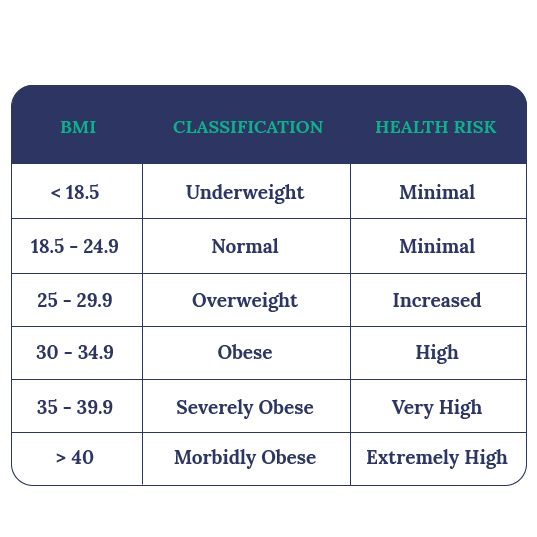The BMI calculator is a tool that can be used to estimate how much body fat a person has. The calculation is based on height and weight.
There are a few things you should know about the BMI calculator, though. Here are four of them:
- The BMI calculator is not accurate for everyone.
- The BMI calculator does not take into account muscle mass.
- The BMI calculator is not a diagnostic tool.
- The BMI calculator is only one part of assessing your health.
Contents
What is the BMI Calculator?
Body mass index (BMI) is a measure of body fat based on height and weight that applies to adult men and women.
BMI is used as a screening tool to identify possible weight problems in adults. It is not a diagnostic tool. A healthcare provider can determine if someone has a high BMI due to extra body fat, muscle mass, bone density, or water retention.
BMI does not measure body fat directly, but it provides a reliable indicator of body fatness for most people.
The BMI calculator can be used to calculate your BMI. To calculate your BMI, you need to know your height and weight. Once you have this information, you can plug it into the BMI formula: weight (in kg) divided by height (in meters squared). You can also use our BMI calculator .
How does the BMI Calculator work?
The BMI Calculator is a simple tool that calculates your Body Mass Index (BMI). BMI is a measure of body fat based on height and weight that applies to both adult men and women.
To calculate your BMI, enter your height and weight in the calculator below. The calculator will then show you your BMI and whether you are considered underweight, normal weight, overweight, or obese.
Check your BMI here:

Underweight: If your BMI is less than 18.5, you are considered underweight. This means that you may be at risk for health problems related to being underweight.
Normal weight: If your BMI is 18.5-24.9, you are considered a normal weight. This means that you are at a healthy weight for your height and not at risk for any health problems related to being overweight or obese.
Overweight: If your BMI is 25-29.9, you are considered overweight. This means that you may be at risk for health problems related to being overweight such as high blood pressure or type 2 diabetes.
Obese: If your BMI is 30 or above, you are considered obese. This means that you may be at risk for health problems related to obesity such as heart disease.
What are the benefits of using the BMI Calculator?

The BMI Calculator is a great tool for helping you to assess your risk for obesity and track your progress if you are trying to lose weight. Here are some of the benefits of using the BMI Calculator:
- Helps you assess your risk for obesity: The BMI Calculator can help you to calculate your Body Mass Index (BMI), which is a measure of body fat based on height and weight. A BMI of 30 or above indicates obesity, so the calculator can be a useful tool for assessing your risk.
- Tracks your progress: If you are trying to lose weight, the BMI Calculator can help you to track your progress over time. By inputting your current weight and height, as well as your starting weight and height, the calculator will show you how much progress you have made.
- Easy to use: The BMI Calculator is easy to use and only requires a few minutes to input your information and get results.
- Free: The BMI Calculator is available for free online, so there is no cost involved in using it.
What are the limitations of the BMI Calculator?
The BMI Calculator is a useful tool for estimating your body fat, but it has its limitations. First, the BMI Calculator does not account for muscle mass. So, if you are very muscular, the BMI Calculator may overestimate your body fat. Second, the BMI Calculator does not account for age.
So, if you are over the age of 40, the BMI Calculator may underestimate your body fat. Third, the BMI Calculator does not account for ethnicity. So, if you are of African or Asian descent, the BMI Calculator may underestimate your body fat.
Finally, the BMI Calculator is just an estimate. It is not a diagnostic tool and should not be used as such.
How to use the BMI Calculator
The BMI Calculator is a simple tool that allows you to calculate your Body Mass Index. To use the BMI Calculator, simply enter your height and weight into the appropriate fields and click the “Calculate” button. Your BMI will be displayed in the results field.
If you’re not sure what your BMI is, or if you’re not sure how to interpret the results, don’t worry! We’ve got you covered. Read on for more information about BMI and how to use the BMI Calculator.
How do I interpret my results?

BMI stands for Body Mass Index. It’s a way of measuring whether or not someone is a healthy weight for their height. To calculate BMI, you need to know someone’s height and weight. Once you have this information, you can use the BMI Calculator to determine your BMI.
BMI isn’t perfect, but it’s a good general indicator of whether or not someone is at a healthy weight. It’s important to remember that everyone’s body is different, so there isn’t necessarily one “ideal” BMI. However, a healthy BMI is generally considered to be between 18.5 and 24.9.
Conclusion
The BMI calculator is a useful tool for anyone looking to lose or gain weight. However, there are a few things you should keep in mind when using it. First, the BMI calculator does not take into account muscle mass. Second, it can be inaccurate for people who are very tall or very short. Finally, it is only meant to be used as a general guide; if you have any health concerns, please consult your doctor before making any changes to your diet or exercise routine.
Read my other articles on beauty and health : Click Here


Very useful